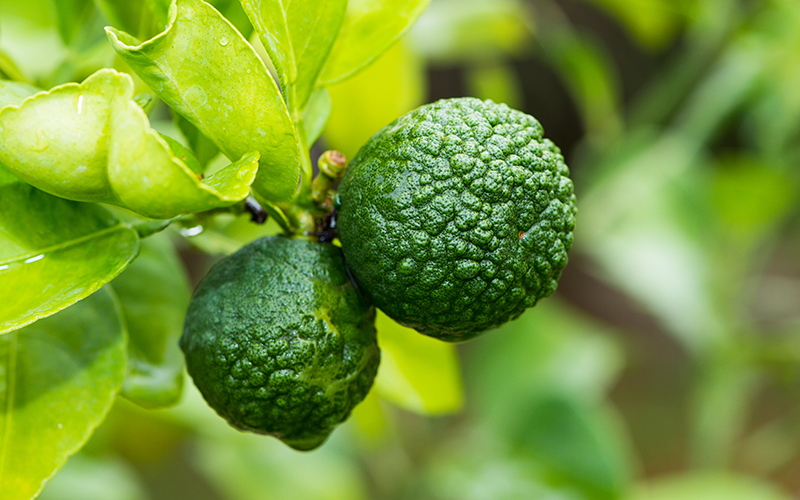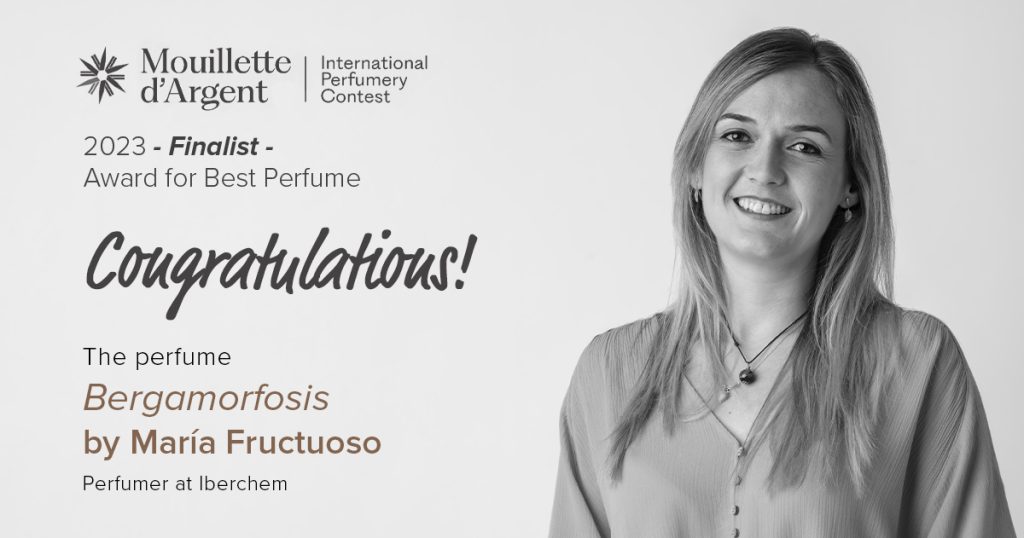Natural ingredients: Bergamot

Bergamot (Citrus bergamia) is one of the most prized fragrant citrus fruits used in perfumery for its essential oil, which is extracted from the peel rather than the flesh. The fruit is widely grown in the Calabria region of southern Italy.
Its origin is unclear, although it can be traced back to other citrus fruits such as oranges from China and India. Bergamot is said to be a cross between bitter orange and lemon, and is best known to the public as the main ingredient in bergamot-flavoured Earl Grey tea, or the original Eau de Cologne created by Jean-Marie Farina in 1709.
Today we discover bergamot, the main ingredient of the perfume Bergamorfosis by María Fructuoso, Perfumer from Iberchem and finalist of the Mouillette d’Argent 2023 competition.
What is bergamot?
Bergamot is a fruit of the bergamot tree, small in size and slightly pear-like in shape, hence another name is the bey pear (prince’s pear), which comes from the Turkish word bey armudu.
It has a fruity, slightly sour and bitter taste and a very aromatic peel from which the essential oil of bergamot is extracted. It is grown almost exclusively in the Italian province of Calabria, which accounts for over 90% of world production.
It takes about 100 bergamots to produce 85 grams of essential oil, and about 1000 bergamots to produce about one litre.
The green gold of Calabria, as bergamot is also known, has become a protected plant in this region of the peninsula in southern Italy, although it was originally grown there as an ornamental tree to decorate gardens.
It is also grown in Argentina, Brazil, Algeria, Ivory Coast, Morocco, Tunisia, Turkey and South-East Asia, among others.
What does bergamot smell like?
The scent associated with bergamot is fresh and citrusy, with mild spicy and floral undertones. It is similar to the scent of orange and the floral notes of lemon, depending on the time of year. Its aroma can be fresher or more floral depending on the harvest. The fruit is harvested between November and February, when it changes colour from green to yellow.
Only the peel is used in perfumery, cosmetics and some food products. It is cold extracted with huge machines called peelers, and after being peeled, pressed and centrifuged, it is distilled.
Bergamot, like other citrus fruits, is usually used as the top note in a perfume to give it a warm and elegant tone in the initial stages. “The scent of bergamot is subtle, complex and deep,” says María Fructuoso.
Bergamorfosis, a bergamot-based perfume
Maria Fructuoso, Iberchem Perfumer and creator of Bergamorfosis, a finalist in the Mouillette d’Argent 2023 competition, tells us about the process of creating her bergamot-based perfume, inspired by the cultural and olfactory diversity of the Mediterranean.
“From the first moment I knew that bergamot was the main note of the VI edition of the Mouillette d’Argent competition, I was clear about the main objective of my fragrance, I wanted to create a dynamic perfume in which evolution would be its main facet, because for me that is how all perfumes should be, stories that you know how they start, but never how they are going to end. I like to surprise with my creations and that’s what I set out to do with Bergamorfosis”, says María Fructuoso.

In terms of composition, Bergamorfosis is a unique perfume. “It features a citrusy and fresh top note, characteristic of bergamot, the main ingredient of this edition, which is reminiscent of the Western Mediterranean. I wanted to combine this intense freshness with an elegant woody and floral body. For this, I used a blend of sandalwood and heavy florals such as tuberose or osmanthus. These are the perfect notes to link with a warm, musky base, adorned with light oriental nuances of leather. The result is a harmonious perfume, in which bergamot is dressed in light dark touches that give it its own surprising style”, she concludes.
Want to know more about natural ingredients in perfumery? Read in our blog about other natural ingredients like patchouli, amber, sandalwood…
